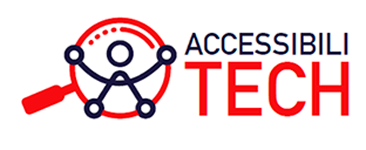Take My Class Online: Understanding Accreditation and Quality
In today’s education landscape, online Take My Class Online learning is no longer just an alternative to traditional classroom-based education. It has become a mainstream mode of instruction, especially with the rapid technological advancements and the rise of global education access. However, as the popularity of online learning continues to grow, it’s critical for students to be discerning about the quality of the education they are receiving. One of the most important aspects to understand when considering an online course is accreditation and how it ensures the quality and legitimacy of the program.
Accreditation is a process by which educational institutions and programs are evaluated against certain standards of quality and rigor, typically by recognized accrediting bodies. Whether you are pursuing a degree, certification, or even a non-degree course, understanding how accreditation works and its importance in online education is crucial. In this article, we will explore the role of accreditation in online education, the different types of accreditation, how to verify the legitimacy of an online program, and why accreditation matters for your educational journey and future career prospects.
What is Accreditation?
Accreditation is the formal recognition of an institution or program by an authoritative body, usually a non-governmental organization, that ensures it meets specific standards of academic quality. These accrediting agencies assess the curriculum, faculty qualifications, student support services, and overall effectiveness of the institution or program. Accreditation provides students with the assurance that the program or institution they are enrolled in offers quality education that meets the required standards.
When it comes to online education, accreditation is even more important. Without physical campuses or in-person interactions, it can be difficult for students to gauge the legitimacy and quality of an online course or program. Accreditation offers a way for students to verify that the program they are choosing has been thoroughly evaluated and meets the expected academic standards.
Types of Accreditation
There are two main types of accreditation that apply to online educational institutions: regional accreditation and national accreditation. Each type has different criteria and purposes, but both aim to ensure the quality of education. Let’s take a closer look at both types.
- Regional Accreditation
Regional accreditation is considered the most prestigious and is often associated with nonprofit, degree-granting institutions. In the United States, there are six regional accrediting agencies, each responsible for evaluating Pay Someone to take my class and accrediting institutions within a specific geographic area. These agencies are recognized by the U.S. Department of Education and the Council for Higher Education Accreditation (CHEA).
Regional accreditation is a mark of academic excellence and signifies that the institution adheres to rigorous standards in terms of academic programs, faculty qualifications, student services, and institutional management. Institutions with regional accreditation are generally able to offer degrees (associate, bachelor’s, master’s, and doctoral) that are widely recognized and accepted by employers, other educational institutions, and professional organizations.
In addition, students attending regionally accredited schools have access to federal financial aid, including grants and loans, which is not the case for institutions with national accreditation.
- National Accreditation
National accreditation is typically awarded to non-degree-granting institutions or specialized programs. National accrediting agencies may focus on particular types of education or career fields, such as trade schools, vocational training, and for-profit institutions. While national accreditation is legitimate, it is often viewed as less prestigious than regional accreditation, particularly when it comes to academic programs and degree offerings.
Nationally accredited programs may still provide high-quality education, but degrees from these institutions may not be as widely accepted by other schools or employers. This is particularly important if you plan to transfer credits or pursue advanced degrees from other institutions. Additionally, students attending nationally accredited institutions may not have access to the same financial aid options as those attending regionally accredited schools.
While regional accreditation is typically preferred for degree programs, national accreditation can still be valuable in specific industries, such as health care, technical fields, or the arts. The key is to understand what your goals are and how the type of accreditation affects your future plans.
How Accreditation Impacts Online Learning
Online learning is becoming an increasingly viable option for students who are unable to attend traditional, in-person classes. However, the rise of online education has also led to an increase in unaccredited or poorly accredited programs, which can make it difficult for students to discern which programs offer quality education.
Accreditation plays a particularly important role in ensuring that online programs meet the same high standards as their on-campus counterparts. Here’s how accreditation impacts online learning:
- Ensures Quality and Rigor
Accredited online programs are held to nurs fpx 4055 assessment 3 the same academic standards as traditional programs. This means that the courses, materials, faculty, and overall curriculum undergo thorough evaluation and must meet strict quality standards. By choosing an accredited online program, students can be confident that they are receiving a rigorous education that prepares them for the challenges of their chosen field.
- Validates the Legitimacy of the Program
Unfortunately, there are many online programs that lack proper accreditation or offer subpar education. Without accreditation, a program’s legitimacy is questionable. Accreditation ensures that the institution offering the program has met the required standards for academic quality and has undergone a comprehensive review process. This provides students with the assurance that their education is legitimate and valuable.
- Ensures Transferability of Credits
Accreditation also affects the transferability of credits. If you plan to continue your education after completing an online program, you’ll want to ensure that the credits you’ve earned are transferable to other accredited institutions. Regionally accredited schools are more likely to accept transfer credits from other regionally accredited institutions. In contrast, national accreditation may limit your ability to transfer credits, particularly if you are transferring to a regionally accredited institution.
- Provides Access to Financial Aid
One of the most significant benefits of choosing an accredited online program is that you’ll be eligible for federal financial aid, such as student loans and grants. Only programs with recognized accreditation can offer these types of financial aid, which can make a significant difference in your ability to finance your education. For students attending unaccredited or nationally accredited programs, financial aid options may be limited or unavailable.
- Enhances Job Prospects
Employers are more likely to recognize and value degrees from accredited institutions, especially if they are regionally accredited. Accreditation signals that the educational institution has met high standards of academic excellence, and employers are generally more comfortable hiring candidates with degrees from accredited programs. Unaccredited degrees may not carry the same weight, and employers may be hesitant to hire candidates who have not received formal, accredited training.
How to Verify the Accreditation of an Online Program
With the growing popularity of online education, it’s important to know how to verify the accreditation status of a program before enrolling. Here are some steps you can take to verify the legitimacy of an online program:
- Check the Institution’s Website
Most accredited institutions will proudly nurs fpx 4065 assessment 4 display their accreditation status on their website, often in the footer or under a dedicated “Accreditation” section. This information should include the accrediting agency’s name and the type of accreditation (regional or national).
- Visit the U.S. Department of Education’s Database
In the United States, the U.S. Department of Education (ED) maintains a database of accredited institutions and programs. You can search for your institution in the ED’s online database to verify its accreditation status. This database is an excellent resource for students to ensure that their online program is legitimate and meets federal standards.
- Consult the Council for Higher Education Accreditation (CHEA)
CHEA is a nonprofit organization that recognizes accreditation agencies in the U.S. They maintain a list of accredited institutions and programs, which is another useful resource for verifying accreditation status. Their website allows you to search for institutions by name and confirm whether they are accredited by a recognized agency.
- Ask the Institution Directly
If you’re unsure about a program’s accreditation status, don’t hesitate to ask the institution directly. An accredited institution should have no problem providing you with the name of the accrediting agency and other relevant information. If they are hesitant or unable to provide this information, it could be a red flag.
Why Accreditation Matters for Online Education
Accreditation is a critical consideration for anyone pursuing an online education. Here are a few reasons why it matters:
- Ensures you’re receiving quality education: Accreditation is a mark of academic rigor and ensures that you are receiving an education that meets established standards.
- Protects your investment: Choosing an accredited program helps ensure that you’re investing your time and money into a legitimate educational opportunity.
- Opens doors to future opportunities: Accreditation can impact your ability to transfer credits, pursue advanced degrees, and secure employment in your field.
- Provides financial aid eligibility: Accredited programs are eligible for federal financial aid, which can be crucial for funding your education.
Conclusion
When choosing an online learning nurs fpx 4015 assessment 5 program, understanding accreditation and the quality it guarantees is crucial. By selecting an accredited program, you are ensuring that you are receiving a quality education that meets established academic standards. Accreditation also provides peace of mind regarding the legitimacy of the institution and ensures that your degree will be recognized by employers and other educational institutions. Whether you are pursuing a degree or certificate online, make sure to verify the accreditation status of your program to ensure that your investment in your education will be worthwhile.
As online education continues to grow, it’s more important than ever to make informed decisions about where and how you pursue your studies. By prioritizing accreditation, you are safeguarding the quality of your education and setting yourself up for success both academically and professionally.
More Articles:
How Online Class Help is Changing the Definition of Academic Support
From Temporary Fix to Long-Term Habit: The Escalating Use of Class Help


